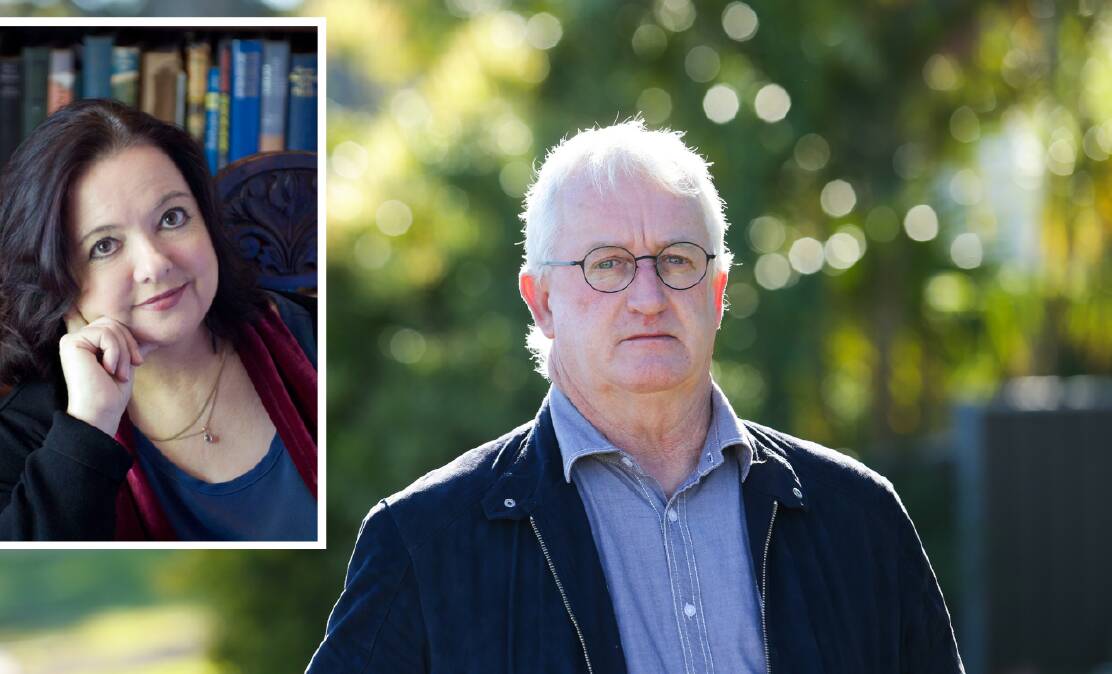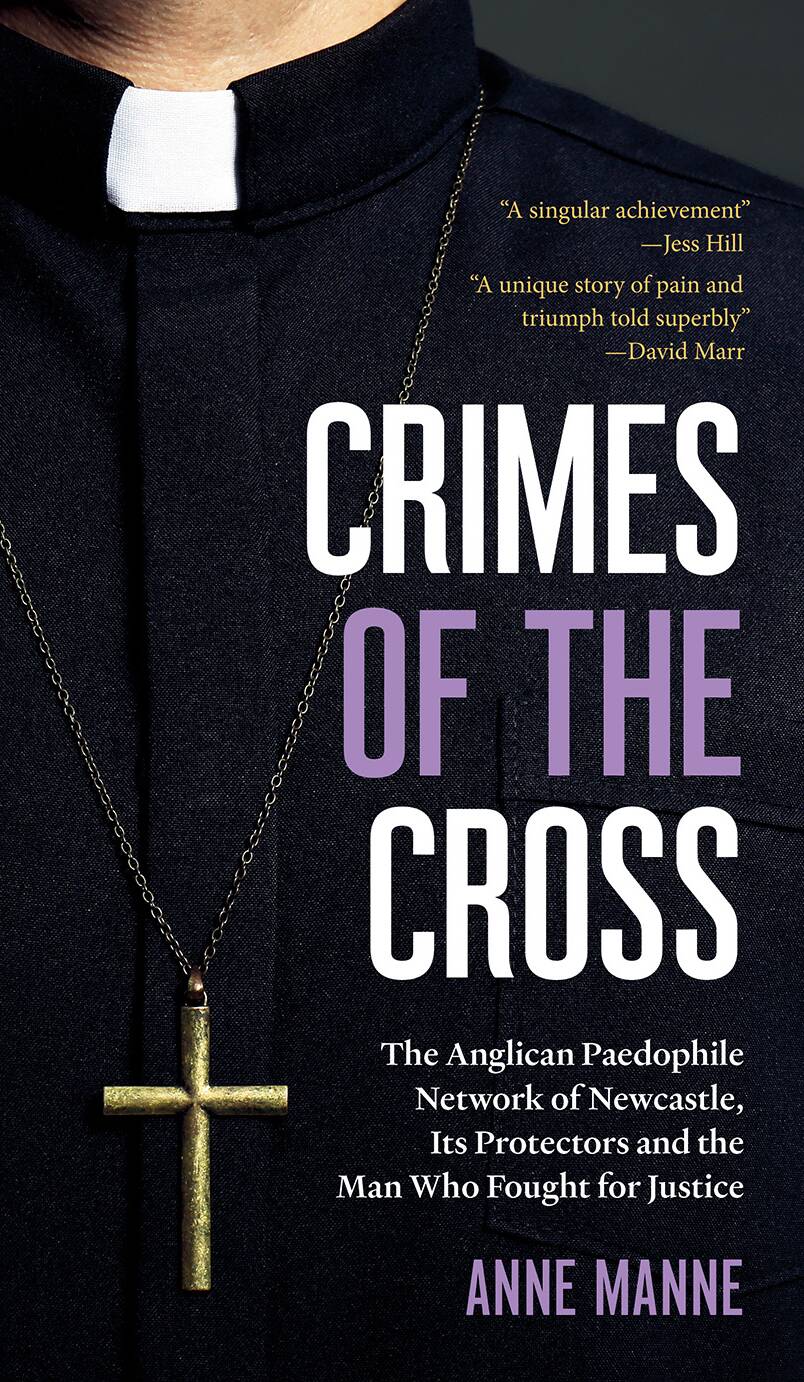
Author Anne Manne was so "flabbergasted by the cruelty shown to children" by the Anglican Dioceses of Newcastle, she knew she had to write about it.
But it was a message she received from a survivor who gave evidence anonymously in the Royal Commission into Institutional Responses to Child Sexual Abuse about an article she wrote on the Anglican case study that formed the "spine" of her new book, Crimes of the Cross.
That survivor was Steve Smith, who endured years of abuse as a child by an Anglican priest, which was compounded by the church's efforts to silence him.
"Steve had written back to me after my essay Rape Among the Lamingtons which came out early 2017," Manne said.
"It is a big responsibility to write about a survivor's experiences... so I was really so pleased when he said that I got it right in relation to the case, but especially his story."
Manne had a personal rule not to contact survivors who gave evidence anonymously to respect their privacy, but Mr Smith was more than willing to talk.
That has culminated in the publication of Mr Smith's story in Manne's book Crimes of the Cross: The Anglican Paedophile Network of Newcastle, Its protectors and the Man Who Fought For Justice.
The book delves into Case Study 42 on the Anglican Church, including high-profile abusers in the diocese such as Graeme Lawrence and Peter Rushton. It also chronicles Mr Smith's life, from before he was abused - such a happy kid he was nicknamed 'Smiley' - to the years of graphic sexual abuse and being dismissed over and over before finally being able to testify before the Royal Commission more than 40 years later.
The man who abused Mr Smith, former Newcastle Anglican priest George Parker, was first charged with child sex offences in 2000, but the charges were sensationally no-billed in court. Parker was re-charged in 2016, and died three weeks later.
Manne described Mr Smith's story as the "spine" of her piece.
"It's really crucial to the book," she said.
"His story is incredibly compelling. He's such a fighter and he fought for justice for not just himself but all survivors for so long.
"A man of courage, remarkable strength, but also willing to talk honestly about his vulnerability.
"What I wanted to do with Steve was to re-imagine his life for him, in a sense that I wanted to go back to the childhood before the abuse and also obviously talk about the abuse and the aftermath and then his struggle to get justice from the church. To get them to acknowledge truthfully what had happened.
"So it was really important to see Steve's life as a whole and including the fact that he was vindicated by the royal commission.
"He's become highly respected among survivors and so his life has become a torch in a way to lead others out of the darkness."
For Mr Smith, that involved reliving the trauma through hundreds of hours of conversation. But it was something he thought was worthwhile.

"It's always been important to me that the story of how people were treated gets out there," he said.
"I think it's good for other survivors to read that, even though you seem defeated most of the time, you can actually win, you can actually get a result and get some justice.
"Even though sometimes the odds seem insurmountable, which in my case most of the time it did, you've just got to pick yourself back up and go again. Otherwise it's a life sentence if you don't deal with it.
"Back in the day, the church was an aggressive, unhelpful organisation. They did everything they could to destroy me, but in the end they didn't and I'm grateful that I was able to survive that and I want people to understand that you can survive this stuff."
Telling his story also helped Mr Smith reflect on what happened to him.
"It actually gave me an even better understanding of how it all happened over these 50 years," he said.
"There's been one thing after another and you never in your own mind put it all together into one continual story, so actually reading the book for me was quite confronting - I was quite shocked when I first read it.
"But every time this stuff is openly discussed and I see progress in the way survivors are treated, and further hope for people to get the help they need, the justice they need, I find that healing for me."
Mr Smith's characterisation of the book as confronting is undeniable. It details the horrific details of what perpetrators did to children, how it was covered up and the culture that allowed it to continue unchecked.
But Mr Smith and Manne both believe it is important history for the people of Newcastle.
"I would hope people would look and see just how much power structures were involved in making life really difficult, for people who were whistleblowers, who came forward in the clergy like (retired Bishop) Greg Thompson and survivors like Steve," Manne said.
"There were an enormous amount of death threats and abusive behaviour and vandalism and dogs being abducted and just terrible, frightening behaviour to try and warn people off.
"So it was a very serious network and it flourished for a long time."
"I feel this book is a real turning point for Newcastle," Mr Smith said. "It's a really honest, open account of what was going on in this town.
"The thing that's always concerned me about the whole thing is the number of lay people within the church that supported these people, knowingly supported people who were abusing kids. They looked the other way.
"You know when you've got those sort of people in an organisation, you've got something really unhealthy going on."
A launch of the book is being held at the Lockup on April 28, led by Tanya Wilks in conversation with Manne and Mr Smith.







